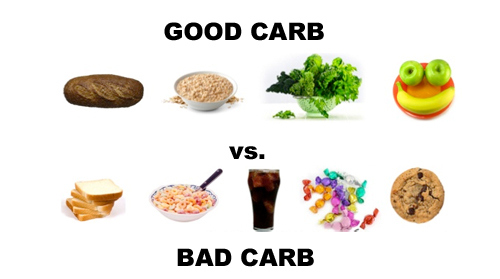Eating Healthy: When carbs are good carbs


Everyone loves carbs! Because really what is not to love? After all what would life be like without a bag of potato chips, girl scout thin mints, movie popcorn, cheese pizza, and sour patch kids? Recent years have brought carbohydrates a very bad name, blaming illnesses and conditions such as diabetes and different cancers on that particular food group. Furthermore, people completely blame their weight gain or attribute their weight loss to carbohydrates. But are all carbs truly bad for you?
What are carbs?
Carbohydrates, next to protein and fats, are a main type of nutrient. They are claimed to be the most important source of energy for your body and definitely the most easily accessible one. Your digestive system processes carbohydrates into glucose which your body uses for energy, all life processes and to sustain vital organs. It stores any extra sugar in your liver and muscles for when it is needed and the rest is stored as fat.
Depending on their chemical structure, carbs are divided into simple and complex. Simple carbohydrates include sugars found naturally in foods such as fruits, vegetables, milk, and milk products. They also include sugars added during food processing and refining. Complex carbohydrates include whole grain breads and cereals, starchy vegetables and legumes. Many of the complex carbohydrates are fiber rich.
Which carbs are good for me and when?
It may be confusing to start with but choosing the healthiest carbs is not so difficult. While it is important to read the food labels and pick foods with the highest amounts of fiber and lowest amounts of sugar (this means your body will process the carbs for fuel in a slow and beneficial manner), here are some simple rules to stick to.
- Eat as few processed foods as possible. Shop organic and cook. Know what goes into your mouth. Processed foods such as most breads and fast foods contain added sugars and preservatives.
- Fruit is NOT bad for you! Incorporate fruits into your diet instead of refined sugars.
- Learn about foods with low GI (Glycemic Index). These are the foods that release sugar slowly without spiking your insulin levels and not only reducing risk of obesity but also limiting risk of the diseases mentioned earlier. Some examples include wholegrain products, oatmeal, quinoa, farro, brown rice, and spelt breads.
- Eliminate all added sugar such as in your tea, coffee, sodas etc. Use natural sweeteners such as Stevia. Remamber that most cereals and yoghutrs as well as dairy in general are high in sugars and generally not very healthy for you.
- If you consume high carb meals or simple carbs, do it around a workout or physical activity time, it will increase your body´s ability to use it in a constructive manner (muscle building, energy), rather than storing it as fat.
Sometimes it may be good to try and introduce a low carb day to let your body regulate its insulin management but generally sticking to wise choices should help you remain healthy.



